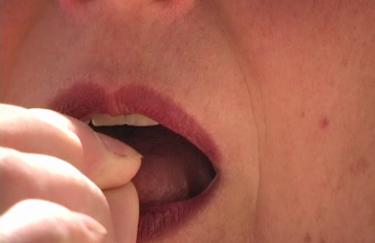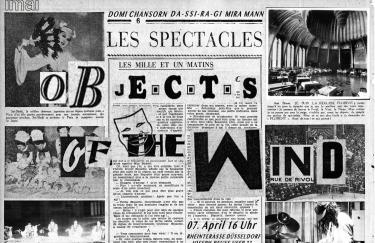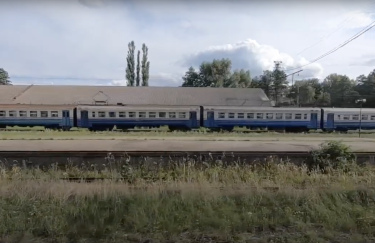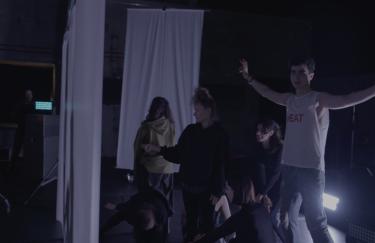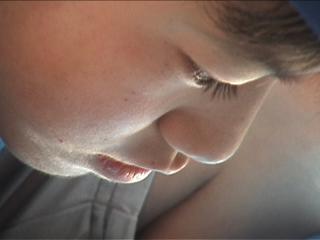
Circulating Copies: Artist talk Barbara Hlali and screening
Artist talk with Barbara Hlali in the context of the screening program Secret Time
Barbara Hlali's animated films revolve around the persistently relevant issues of war, flight, and displacement, without ever losing sight of the possibility of resistance and liberation. For the film Painting Paradise, which is currently on view as part of the screening Secret Time at HafenKunstKino, the artist won the German Film Critics Association's prize for the best experimental film of 2009. Her works are in the collection of the Museum Ostwall in the Dortmunder U and are currently on display as part of the collection presentation Kunst → Leben → Kunst. Das Museum Ostwall gestern, heute, morgen (Art → Life → Art. The Museum Ostwall yesterday, today, tomorrow).
Inspired by Japanese artist Aki Nakazawa’s eponymous video work, the Secret Time program brings together poetic, ecstatic, media-reflective, and socio-critical works made between 1979 and 2008 from the IMAI’s collection. Varying from loud to subtle, they manifest forms of social criticism that thematise or evoke alternative states of consciousness as excess or escapism.
Aki Nakazawa (b. 1976, JP) draws our attention to moments that are scarcely noticed in everyday life and might otherwise pass us by. Like a daydream, time momentarily stands still and the feeling of calmness and beauty spreads. In Secret Time, the moment of pausing and the experience of serenity culminate in something existential, which the artist translates into poetic images. Barbara Hlali (b. 1979, DE) pursues a vision of a peaceful world and manipulates media images of conflicts around Baghdad by overpainting them. In Painting Paradise, soldiers are transformed into civilians, and the war-torn city becomes a holiday paradise with a palm beach. The starting point for Fucking Christmas by Julián Álvarez (b. 1950, ES) is a concert by US singer and poet Lydia Lunch, which took place in Barcelona in November 1989. Álvarez combines Lunch’s darkly apocalyptic recitation, in which her spoken word performance starts with the words ‘disaster claims’ and repeatedly asks ‘When does it stop?’, with melancholy images of the city full of Christmas decorations that are characterised by consumerism and loneliness. In their work In Shadow City, Constance DeJong and Ken Feingold (b. 1950, USA / b. 1952, USA) interweave Eastern and Western approaches to dealing with animals to create a dense narrative that culminates in a play with animal masks. The video addresses the roles that animals play in different cultures, the spiritual power attributed to them, but above all their exploitation and the destruction of their natural habitats by rapidly growing cities. When Dara Birnbaum (b. 1946, USA) made the work Technology / Transformation: Wonder Woman at the end of the 1970s, television was a dominant mode of media consumption. The artist worked with found footage from the superheroine television series Wonder Woman to draw attention to stereotypical representations of women in the media. The video was then shown in the window of a hairdressing salon in New York and confronted pedestrians with domestic media consumption in a public place.
Program:
Aki Nakazawa, Secret Time, 2004, 4:25 min.
Barbara Hlali, Painting Paradise, 2008, 5:35 min.
Julián Álvarez, Fucking Christmas, 1990, 13:27 min.
Constance DeJong und Ken Feingold, In Shadow City, 1988, 11:44 min.
Dara Birnbaum, Technology / Transformation: Wonder Woman, 1979, 05:40 min.
Thanks to Hajo Rappe und Björn Merse
Secret Time is part of the Circulating Copies program.

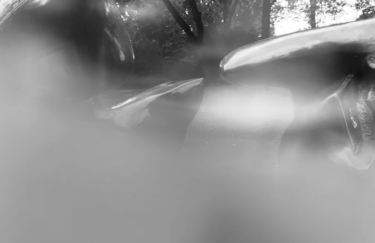
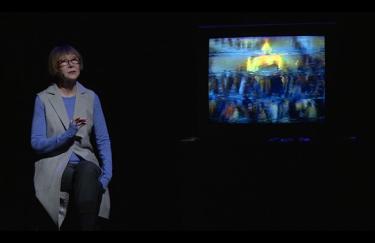
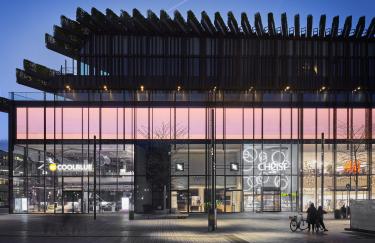
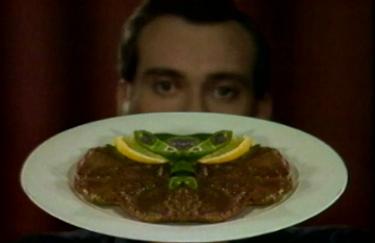
![ELA EIS, Miracle Whip [Befreit], 1979, Filmstill, © ELA EIS, 2024 ELA EIS, Miracle Whip [Befreit], 1979, Filmstill](/sites/default/files/styles/custom_mobile_crop/public/media/images/2024-04/Ela_Eis.jpg?h=ffef0b99&itok=K07PSaFm)
